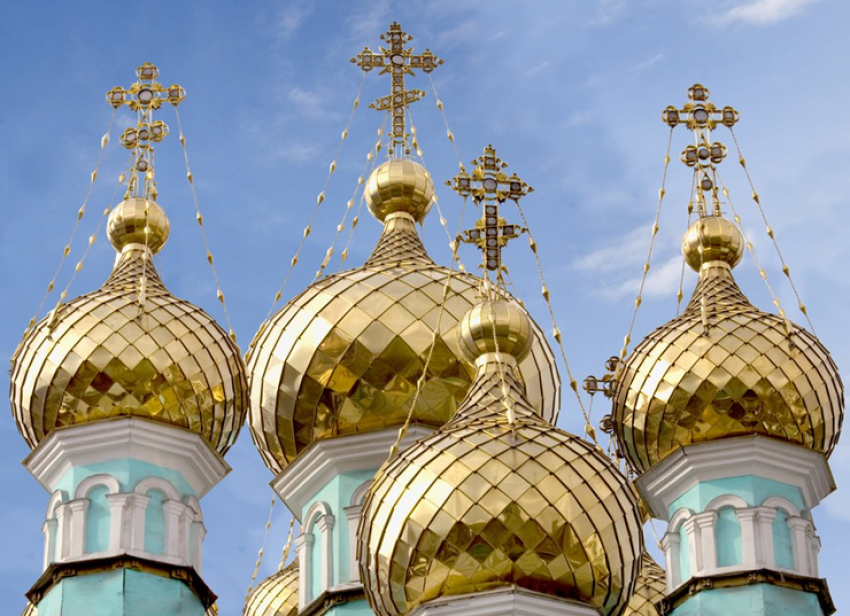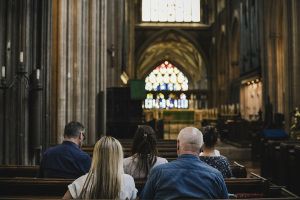Rise in police raids, arrests sparks concern among Baptists in Kazakhstan

A sharp escalation in police raids, arrests and fines in the past two months have traumatized Baptists in southern Kazakhstan, raising concerns about the future of religious liberty in the country.
The raids are reminiscent of persecution during the previous rule of President Nursultan Nazarbayev from 1991 to 2019, a legal expert in Kazakhstan told Christian Daily International.
“The practice of raids, persecution, and fines against religious minorities often occurred during the adoption of amendments to the law on religious activities,” said the legal expert, who fears Kazakhstan could tighten religious laws soon.
“So, on one hand, this situation is very reminiscent of the old methods of the old regime,” he said. “But it could also be a provocation against the new government [of President Kassym-Jonmari Tokayev], as the precedents in southern Kazakhstan described by Forum 18 occurred during the collection of information about the state of religious freedoms by the U.S. Embassy, to show that the regimes of Nazarbayev and Tokayev are equally authoritarian. Such an opinion also has its place.”
Persecution of Evangelicals in Kazakhstan looks set to worsen under the new regime, he said.
“Currently, the Kazakhstani authorities have repeatedly announced that there will be a tightening of the law on religion in the near future,” the source said.
Forum 18 recently reported that police raided four worship meetings in three unregistered Protestant churches in Shu District, near the border with Kyrgyzstan, in March and April. Officers reportedly filmed worshippers and demanded written statements to explain their activities at the churches. They also meted out seven summary fines.
“What has been happening in the last month in Shu [District] has aroused serious concern among evangelical communities, which have experienced persecution for their religious activity,” the local Council of Churches Baptists reported in a press statement in April, according to Forum 18. The council noted that the Baptist activity “is not illegal or extremist.”
Police raided Shu Baptist Church on April 14, and two days after a second raid on April 30, officers questioned the Rev. Andrei Boiprav, 77, in the yard of his Shu village home. Police accused the church leader of “illegal missionary activity,” although the fellowship meetings took place in a prayer house with only members of his church.
The pastor refused to sign a record of the alleged offense. His case was pending in Shu District Court with an unspecified date.
In a joint statement, church members said they feared actions against the pastor could cause “a threat to his life and health,” as his condition was in a medically confirmed “unsatisfactory state,” according to Forum 18.
“Officials took photos and filmed us,” church members said in the joint statement after the first raid. “They haven’t yet issued any fines, but they conducted explanatory work on the necessity of registering the church.”
Police claimed the second raid on the church arose from a complaint by neighbors, but members said they queried area residents and could find no evidence of a complaint.
“Two officers came into the prayer hall and listened to the whole of the first sermon, and half of the service,” the church members said of the second raid. “The others talked with church members.” Officers demanded that those present write statements indicating why they attended the worship meeting.
One of the officers “almost apologized” to members, saying the order for the second raid came from the religious affairs department, and “we have nothing against you,” according to Forum 18.
Even so, the next day police doled out summary fines of 184,600 Tenge (US$418) to three church members who were pressured into writing statements admitting participation in an “unregistered, halted, or banned, religious community or social organization” under Article 489, Part 10 of the Administrative Code.
Two of the fined church members, Mikhail and Andrei Boiprav, are sons of church leader Boiprav SR.
“I do not agree with the record of an offense because it contradicts the Religion Law,” Mikhail Boiprav said in a statement to police. Church members did not understand the reason for the fines, according to Forum 18.
Police also raided another Protestant church meeting in the village called The Children of God. Further details on this raid were not disclosed.
‘Illegal missionary activity’
In the nearby village of Konayeva, police on March 3 arrived at the worship service of an unregistered Baptist church and filmed and interrogated members, Forum 18 reported.
Court records show the officials “started to film the course of the meeting and the hall, going along the rows and filming the faces of all those present at the worship service. They ignored the requests to stop filming and to explain their actions,” according to Forum 18.
Operational Officer D. Umbet reportedly claimed police intruded into the service after “an anonymous call they had received with a request to check who was meeting at this address and what kind of meeting it was,” according to Forum 18. He interrogated church members, “including whether they met voluntarily or not, and demanded written statements.”
Police summarily fined two church members and the Rev. Valter Mirau, 47, after the raid on Mirau’s home where the church meets.
Pastor Mirau gave a statement to police officers saying the church met voluntarily. The next day, March 4, Inspector O. Sadyrbayev summoned the pastor and two other church members and indicted them. Pastor Mirau later received a fine of 369,200 Tenge (US$838), equal to an average wage for two months, for leading an “unregistered, halted, or banned religious community or social organization” under Administrative Code Article 489, Part 9.
The two church members received summary fines of 184,600 Tenge (US$418) from Inspector Bekkali Dzhaksylykov on March 5 and 6, under Part 10 of the same code. It relates to “participation in an unregistered, halted, or banned religious community or social organization.”
All three Baptists paid the summary fines, which are reduced by half if paid immediately. They appealed in three court hearings in April and May, but judges at Shu District Court and Zhambyl Regional Court rejected the cases.
Pastor Mirau also was fined 369,200 Tenge (US$838) for “carrying out missionary activity without state registration” under Part 3 of Article 490 in the legal code. At a court hearing in Shu District Court on March 27, Pastor Mirau said the church met regularly in his home, and that he did “nothing against the law and did not violate the law.”
The pastor asked for a “just decision,” but Judge Tazhibayeva found him guilty and fined him. He lost a subsequent April 30 appeal at Zhambyl Regional Court.
Religion official blames police
Shu District police did not respond to Forum 18’s queries about the legal reasons for the raids and fines of the Christians.
Saule Baibatshayeva, an official in charge of overseeing non-Muslim communities at the Religious Affairs Department of the Zhambyl Regional Akimat (administration), however, knew about the police raids, according to Forum 18. The watchdog reported that Baibatshayeva claimed she and her colleagues tried to stop police.
“The police are to blame,” Baibatshayeva reportedly said. “They take their own measures under the Administrative Code. There was no order from us.”
Baibatshayeva told Forum 18 that her department always defended believers, although she did not disclose how the local administration would challenge the police raids and fines.
“Those fined know me,” she reportedly said. “Our task is to defend them.”
Baibatshayeva claimed that her department told police not to “touch” unregistered Council of Churches Baptists.
“Let them hold services in their own premises,” she said. “Only if they do something outside their territory will they be touched.”
Fined for preaching
In Almaty city, preacher Sergei Orlov faces a heavy potential fine for “missionary activity without state registration” under Article 490, Part 3 of the Administrative Code after speaking in an apartment in honor of International Women’s Day on March 8.
A stranger at the meeting filmed Orlov giving a message about women in the Bible. Religious Affairs Department official Almaz Zhanamanov refused to disclose reasons for the administrative case, which police initiated following a complaint on March 13 by an unknown woman about the meeting, according to Forum 18.
Orlov appealed, but Judge Galiya Kasymova of Almaty Inter-District Specialized Administrative Court, denied it on April 19, Forum 18 reported. The court case against Orlov is pending.
Forum 18 cited data showing 203 administrative prosecutions against individuals and organizations exercising freedom of religion or belief in 2023. Some 172 of these resulted in punishments, mostly large fines and subsequent convictions.
“Of the known administrative prosecutions in 2023, officials brought 25 (against 20 persons, four companies, and one charity) for meeting for worship without state permission, hosting such meetings, or maintaining places for such meetings,” Forum 18 stated.
‘Tightening’ feared
The law on Religious Activities and Religious Associations, adopted in 2011, prohibits any religious gatherings without official state registration and requires the creation of a legal entity for religious gatherings.
Some Baptist churches are officially registered in the country, the legal expert told Christian Daily International, but others refuse to do so on the grounds of religious liberty.
He said registering a religious association in Kazakhstan is “extremely difficult,” as officials refuse to register churches “on various formal grounds.” They may do this to show that Muslim communities outnumber others, he said. The population of Kazakhstan is estimated to be about 74% Muslim.
There are other practical obstacles to formally registering churches, acknowledged by international human rights and religious freedom experts, he said.
“For example, to establish a legal entity (an officially registered congregation), 50 citizen founders are required, which is a very challenging task for small communities,” he said.
In recent years, he added, authorities in Kazakhstan have “rarely enforced the prohibition on unregistered gatherings against Evangelical Christian Baptists, who prefer to suffer fines rather than register because it contradicts their religious beliefs.”
Tighter religion laws and the expected crackdown on Christians could come about for varied reasons, he said.
“I assume that amendments to the law on religion are more a result of pressure on the Kazakhstani authorities from Russia than a real threat from Islamic radicals, although radical Islamic teachings do have a wide distribution in western Kazakhstan and southern Kazakhstan,” he said. “The indirect evidence that this is Russian pressure on the Kazakhstani authorities is the statement by the Russian Defense Minister Shoigu [recently replaced as defense minister by Andrei Belousov] that there are many dangerous non-profit organizations in Kazakhstan, suggesting that the Kazakhstani authorities should deal with them.”
He also blamed pressure from Russia for the turbulent violations of religious expression in the wider region.
“Also, amendments to the law on religion in Kyrgyzstan, which tighten religious freedoms, were also adopted under pressure from Russia,” he said. “The situation in Georgia regarding human rights violations is also a result of Russian pressure.”
He summarized that “these are just assumptions,” and that the main issue at present remains unwarranted police raids against peace-abiding Christians in Kazakhstan.
“The real situation is that there have been several raids in southern Kazakhstan, and church ministers and parishioners have been fined,” he said.
This article was originally published by Christian Daily International.
Christian Daily International provides biblical, factual and personal news, stories and perspectives from every region, focusing on religious freedom, holistic mission and other issues relevant for the global Church today.



























